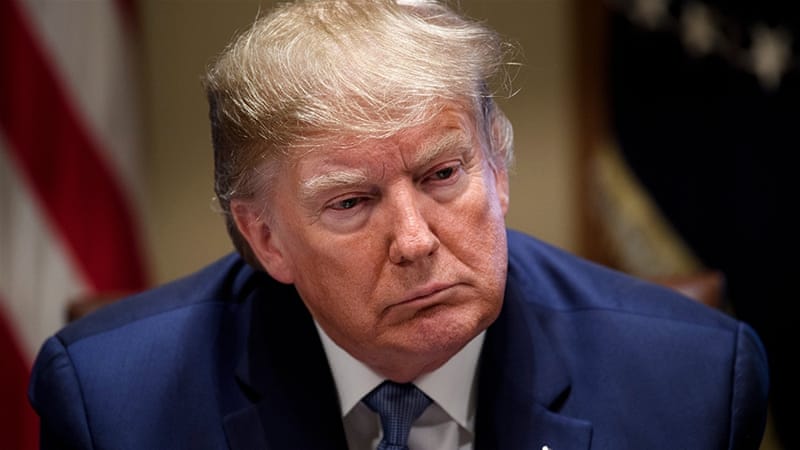America
Trump running out of time to solidify immigration agenda after U.S. election loss

President Donald Trump’s administration is pushing to finalise new immigration restrictions before his term ends in January, according to three senior homeland security officials.
This is a last-gasp effort in a policy area that was a central focus during his four years in office.
The moves come even as Democratic President-elect Joe Biden has pledged to rescind many of Trump’s immigration policies.
By finalising rules that have just been proposed, or issuing last-minute orders, the administration could slow down Biden’s efforts to undo many of Trump’s signature measures that have made it harder for immigrants to enter and settle in the U.S.
A central goal for Trump’s last few weeks in office is replacing a lottery system used to award H-1B visas to skilled foreign workers, according to officials with the U.S. Department of Homeland Security.
Instead, a new selection process would favour visa applicants with higher-paying jobs.
The Trump administration argued in a proposed version of the regulation released in October that the change is needed to better protect U.S. workers.
White House senior adviser Stephen Miller – considered the architect of Trump’s hard-line immigration agenda – said over the summer that the regulations meant to drive up wages in the H-1B programme would be politically unpopular to reverse.
Other measures that could be hurried to the finish line include new rules to restrict access to asylum and a regulation that would allow federal immigration officials to collect DNA from family-based visa applicants and the U.S. citizens or permanent residents who sponsor them.
Another measure would tighten visa rules for international students, cultural exchange visitors and foreign journalists.
The changes would take the form of regulatory actions that are crafted by agencies and do not require congressional approval, but need to follow legal processes outlined in federal law.
News reports have also surfaced about a possible Trump executive order to weaken the constitutional right to citizenship for all people born in the U.S.
A senior homeland security official said, however, the effort did not appear to be a priority for the White House.
Acting DHS Deputy Secretary Ken Cuccinelli is spearheading the last-ditch immigration effort, one official said, as the president continues to promote unfounded claims of widespread voter fraud and has not conceded his Nov. 3 election defeat.
The White House and DHS declined to comment.
Trump is not the first president to engage in a last-minute policy push, according to Republican strategist Alex Conant.
“Every outgoing administration tries to do as much as they can before the clock runs out,” he said.
“There are a lot of true believers in this White House who think immigration is bad for the country and are spending their last hours in power trying to cement their policies.”
Most of Trump’s immigration plans are unlikely to be finished, however, before he leaves office and the ones that are hastily pushed through will be vulnerable to court challenges.
A federal judge on Tuesday blocked two different fast-tracked Trump rules targeting the H-1B program.
The judge said the administration failed to show “good cause” to skip regulatory steps that typically take months or longer.
Rules that have not taken effect by the time Biden takes office on Jan. 20 could be delayed and eventually rescinded, according to three experts in government regulations.
Any work in Trump’s final month in office will also likely be slowed down by the Christmas and New Year’s holidays and possible departures of Trump appointees, which is typical for outgoing administrations.
One closely watched policy area will be any final Trump actions related to the Deferred Action for Childhood Arrivals (DACA) programme, which was instituted by President Barack Obama, whom Biden served as vice president.
Biden has promised to send legislation to Congress that would provide a path to citizenship to the estimated 11 million immigrants living in the country illegally, including those enrolled in the DACA programme.




 Davido's Net Worth & Lifestyle
Davido's Net Worth & Lifestyle 
